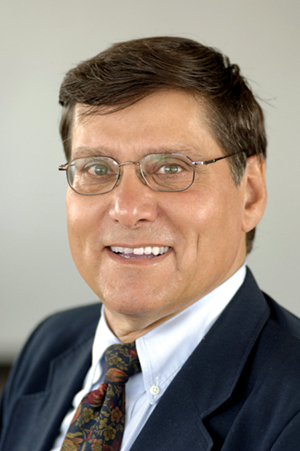The accusatory headline in the Ottawa Citizen was clear: “Ministerial chill eroding IRB: ex-chair.”

It reflected strong words and a strong accusation. It targeted Immigration Minister Jason Kenney by criticizing him for allegedly eroding the independence of the Immigration and Refugee Board.
The board isn’t just any old body. It’s an integral part of Canada’s complicated immigration and refugee system that decides who gets to stay in Canada and who has to go back to where they came from, sometimes into the hands of the tyrannical despot they fled.
We can only guess what happens to them then. Let’s just say we usually don’t hear from them again.
The accusation against Kenney, who makes a very public show that he loves refugees, didn’t come from just anybody. It came from Peter Showler, who was chairman of the board from 1999 to 2002.
He’s as knowledgeable about the workings of the board and our immigration system as people will find anywhere. Showler is still aware of refugee affairs today as head of the refugee forum at the University of Ottawa’s Human Rights Research and Education Centre.
Showler is also part of the newly formed Canadian Association of Refugee Lawyers, a group organized to stand up for refugees.
In seeking out Showler, reporter Don Butler went to someone who knows what he’s talking about.
But the very next day, just as big a headline appeared on the front page: “Kenney defends IRB appointments.”
The minister rejected Showler’s accusation about Conservatives appointed to the board who are “just instinctively less receptive to refugee claims.”
The problem for Kenney is that the evidence is convincing.
In 2009, Kenney made a big speech accusing Mexican asylum seekers of abusing the Canadian system.
It was rare in the past for immigration ministers to slam a particular ethnic community publicly for fear it could bias immigration officials and judges involved in the refugee determination process.
But that didn’t bother Kenney. His government slapped a visa requirement on Mexicans even though those escaping the cartels, corruption, and killings were dying in large numbers.
Mexicans seeking refuge in Canada went from the largest group of applicants to Canada down to a mere trickle.
Even as the Mexican government pleaded and prodded, the government held firm. It was a fine way to treat a NAFTA partner, according to the Mexican president.
The visa gambit isn’t new. The government did the same thing to Hungarians and Czechs in order to keep out Roma people. Of course, that decision followed a public lambasting of the Roma by the government.
Similarly, the Conservatives went after Tamil refugees coming over in rusted tubs commanded by snakeheads and promptly threw them in jail when they got here.
But two years later, the party was trying to line up Tamil candidates for Toronto ridings they wanted to win. They didn’t win any of them.
So is it coincidence that the people appointed by Kenney to the board just happen to think like the minister talks? It’s definitely a coincidence, according to Kenney.
Noted immigration lawyer Barbara Jackman says the problem is the system. The government appoints board members for two, three or five years, after which Kenney or his people assess their performance. Kenney decides who should be reappointed.
Does their performance while on the board affect their reappointment to their $120,000-a-year job? It’s rather obvious that it does. The law, in fact, says it should.
Right now, about 90 per cent of the board members, including chairman Brian Goodman and his two deputies, are appointees of the Conservative government.
The board is turning back more refugee applicants than ever before. But it’s just coincidence, as Kenney would say.
A major factor in the developing conflict between Canadian immigration lawyers and the government goes back to a report prepared by Osgoode Hall Law School professor Sean Rehaag, who examined who’s turning away refugee applicants.
Rehaag discovered that the 30 board members who turned away the most applicants were all appointees of the Conservative government.
Is it really just a coincidence?
Of course, Kenney would say.
Rehaag, however, discovered that one appointee, David McBean, didn’t approve a single refugee claim in 169 cases before him.
He must have done a good job because Kenney appointed him to another five-year term.
Noted immigration lawyer Lorne Waldman says the situation is so bad that when some of his clients hear that they’ll be before a particular board member, they break down and cry.
Nobody is saying there’s ministerial interference. There’s not even the slightest suggestion that Kenney calls up board members handling a case and tells them to reject the application. He doesn’t have to do that.
When the board member thinks as the minister does, it would make no sense to rule otherwise. After all, these people aren’t stupid.
Richard Cleroux is a freelance reporter and columnist on Parliament Hill. His e-mail address is [email protected].

 It reflected strong words and a strong accusation. It targeted Immigration Minister Jason Kenney by criticizing him for allegedly eroding the independence of the Immigration and Refugee Board.
It reflected strong words and a strong accusation. It targeted Immigration Minister Jason Kenney by criticizing him for allegedly eroding the independence of the Immigration and Refugee Board.